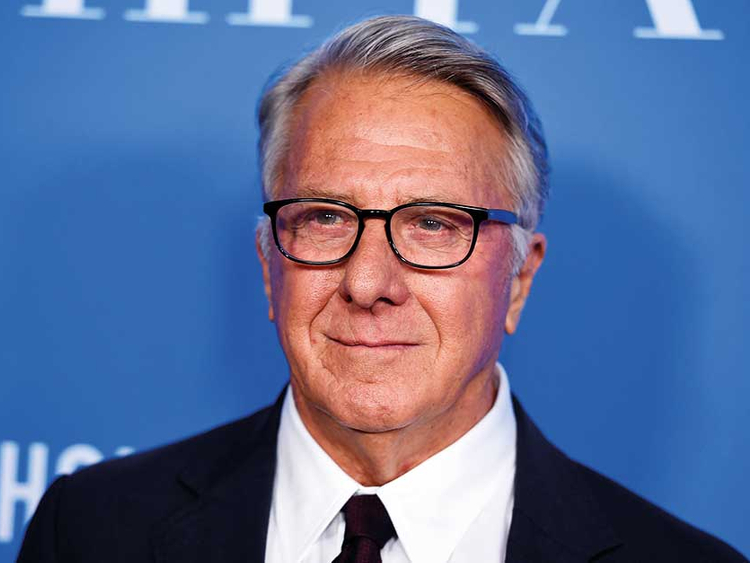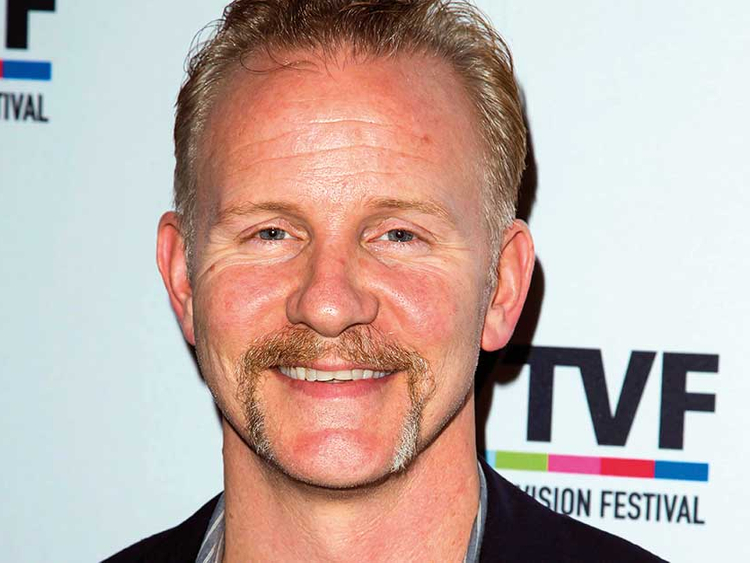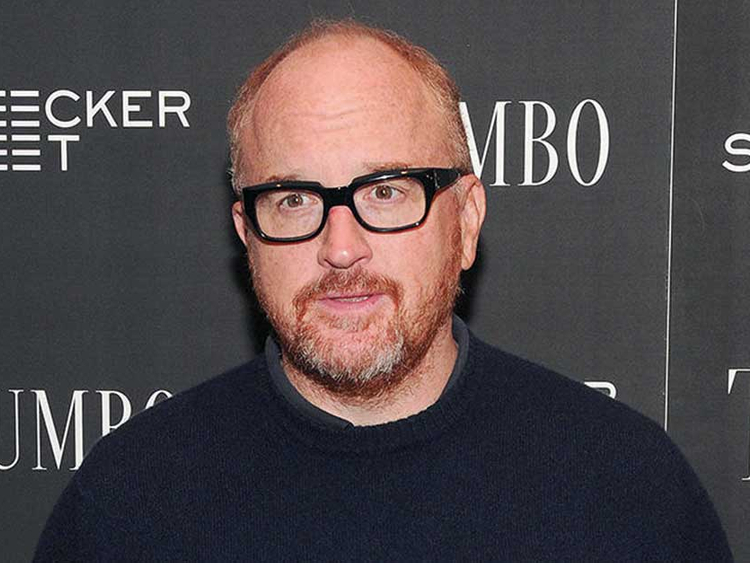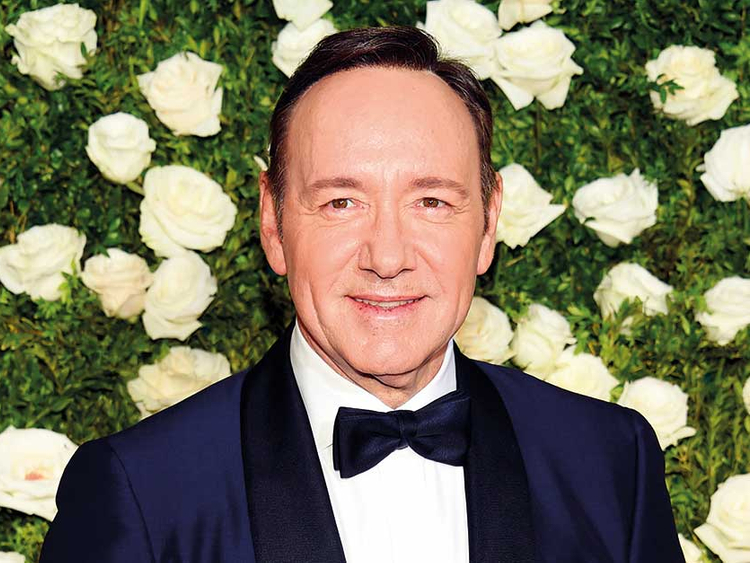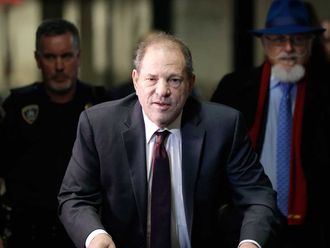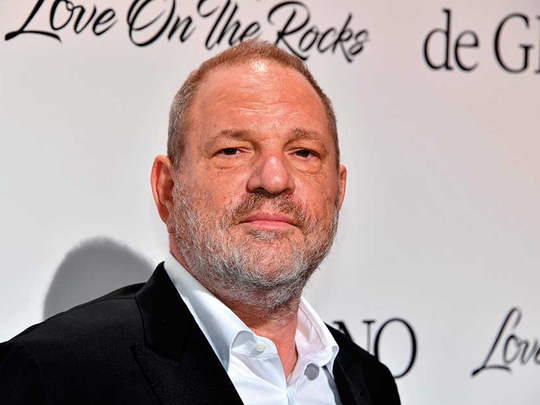
Three months after Harvey Weinstein crashed from his pedestal, barely a day goes by without another entertainment industry figure tumbling into disgrace.
The swarm of sexual misconduct allegations continue to unleash aftershocks that will reverberate through the Oscars in March. Weinstein, Kevin Spacey and other once revered figures are banished from award contention while films centred on women are tipped to prosper.
The question is whether the jolts will effect lasting change in an industry still dominated by men and driven by money. Hollywood scandals, after all, have come and gone for over a century.
“Boss’s sexual harassment a lot more cautious lately,” said a recent headline on the satirical website the Onion.
But interviews with industry figures, including actors, writers, producers and analysts, yield a surprisingly hopeful belief that the tremors will indeed alter the way Hollywood works in 2018 — and, eventually, the type of stories it tells.
“It’s been the most remarkable year. There’s never been a period in history like this,” said Lorien Hayes, who wrote the 2016 documentary An Open Secret, about child abuse in Hollywood. “Things are on the right track. Just the fact that people aren’t afraid to tell the truth is such a marvellous progression.”
Simon Hatt, a producer of big-budget blockbusters including X-Men: First Class, agreed. “People just aren’t going to tolerate the way things were done in the past. So I can feel a lot of hope.”
He added a caveat. “We’re not just going to wake up in 2018 and say: ‘Awesome, it’s all better now.’ It’ll be constant work. Abuses will still happen. But from the look of things, people have the courage to speak up, because the community is listening.”
Alyssa Milano, the actor and activist whose tweet launched the #MeToo movement, thinks storytelling will become more inclusive. “Roles for women will be different, the way women are portrayed in media will be different,” she told the Guardian last month. “I hope women will have the opportunity to be filmmakers, producers and writers. By the very nature of that, the industry will shift.”
Hannah Chequer-Queiroz, a production assistant, said the scandals had increased scrutiny of the way women were depicted on screen, such as the Amazons’ skimpy costumes in Justice League. “I feel like everything is more tactful moving forward for both film and television.”
AN INDUSTRY UNITED
The industry, already chastened by previous controversy over gender pay inequality and the #OscarsSoWhite movement, is trying to formalise new norms.
Leading industry figures and institutions have established a Commission on Sexual Harassment and Advancing Equality in the Workplace, to be chaired by Anita Hill. “The commission will not seek just one solution, but a comprehensive strategy to address the complex and interrelated causes of the problems of parity and power,” the Star Wars producer Kathleen Kennedy, who got the commission rolling, said in a statement.
The Academy of Motion Picture Arts and Sciences, which awards the Oscars, has issued a new code of conduct to its 8,000 members. “There is no place in the Academy for people who abuse their status, power or influence in a manner that violates recognised standards of decency,” Dawn Hudson, its CEO, said in a statement.
Sceptics warn that establishing a code of conduct without clear ways to investigate complaints and enforce punishment is storing up trouble. But few doubt the industry is serious. Revenues and reputations, after all, are at stake.
Ridley Scott expunged Spacey from All the Money in the World, which cleared the way for the film’s Golden Globe nominations. Award tipsters think Greta Gerwig’s Lady Bird, starring Saoirse Ronan, will benefit from a desire to recognise and reward well-crafted stories focused on women.
Four LA-based advertising professionals have launched a site to help audiences track which films and TV shows are associated with alleged predators. It is called Rotten Apples, borrowing from Rotten Tomatoes, a venerable site which ranks films according to reviews.
Actor Christian Bale predicted Hollywood would never be the same. “I can’t see that this will become a footnote and be swept under the rug. It does feel like it will change.”
FALLEN FROM GRACE
The continued stream of men accused of misconduct — Dustin Hoffman, TJ Miller, Gary Goddard and Jeffrey Tambor deny wrongdoing, Morgan Spurlock and Louis CK admit it — seems relentless in 2017. Is there no end to it?
A senior female executive at one studio, who spoke on condition of anonymity, had an optimistic response: in recent years many more women had climbed Hollywood’s corporate ladder, a feminisation that had helped tamp down brazen abuses common in the ‘80s and ‘90s.
“Many of the allegations coming to light now date back to that period.”
Hollywood’s creative side — directors, producers, writers, crews — remained male-dominated but was succumbing to pressure from the lawyers, HR executives and others on the corporate side, she said. “Look at how fast people get fired — it can happen within days, even hours of complaints.”
Sceptics, however, point to the “complicity machine” of publicists, executives, assistants, lawyers and others who facilitated Weinstein’s alleged abuses, some unwittingly, and attempted to cover-up until the New York Times broke the story in October.
Dan Marshall, a screenwriter, said the new climate should help women and other marginalised voices tell their stories on screen but cautioned that exploitation would endure. “It’s a very desperate town. People have dreams and hopes and want to see those dreams happen, and only a few people hold the keys. I don’t think we’re done catching yet.”



